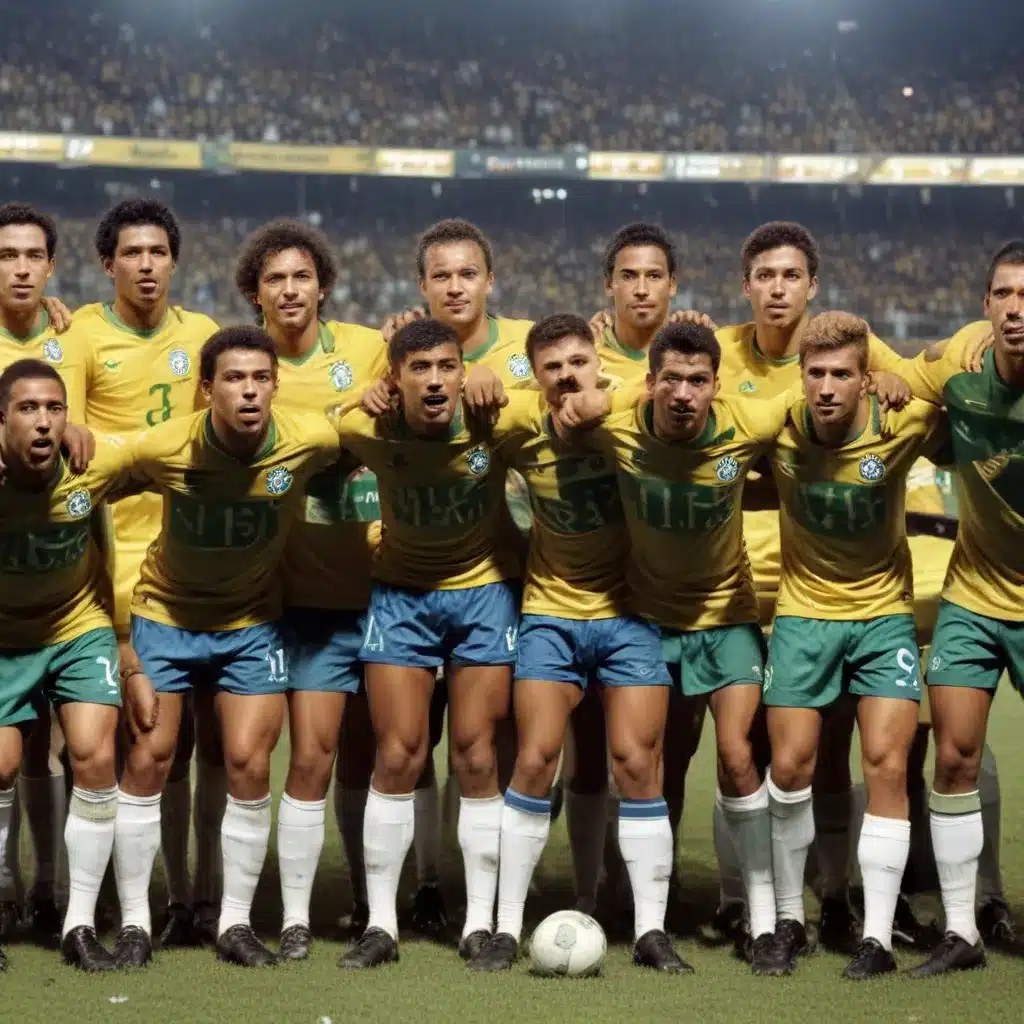
Brazilian Football History
Pivotal Moments
The history of Brazilian football is a tapestry woven with countless threads of triumph, heartbreak, and enduring passion. From the game’s early introduction to the nation in the late 19th century to its present-day status as a global powerhouse, the sport has undergone a remarkable transformation, shaping the very fabric of Brazilian identity.
One of the most pivotal moments in this narrative was the nation’s first World Cup triumph in 1958. Captained by the legendary Pelé, then just a teenager, Brazil’s victory over hosts Sweden not only cemented their place as a footballing superpower, but also solidified the sport’s central role in Brazilian culture. The sight of Pelé’s sublime skills and the team’s flamboyant, attacking style captivated the world, ushering in a new era of “Jogo Bonito” (the Beautiful Game) that would define Brazilian football for generations to come.
Another watershed moment was the 1970 World Cup, where Brazil’s all-conquering squad, led by Pelé, Jairzinho, and Gérson, played a brand of football that is still revered today. Their mesmerising, free-flowing attacks and impeccable technique left opponents in awe, and their 4-1 victory over Italy in the final remains one of the most celebrated performances in the history of the game. The 1970 team’s influence on the evolution of tactics and playing styles worldwide cannot be overstated.
Tragedy also left its mark on Brazilian football, most notably in the 1950 World Cup final, when the host nation’s shock defeat to Uruguay in the decisive match, known as the “Maracanazo,” sent shockwaves through the country. The emotional devastation was palpable, but it also fuelled a renewed determination to reclaim the trophy, a quest that was finally realised eight years later in Sweden.
National Identity and Football
Football has long been woven into the fabric of Brazilian national identity. The sport’s ability to captivate the hearts and minds of the people, transcending class, race, and regional divides, has transformed it into a unifying force unlike any other. The triumphs and tribulations of the national team have become inextricably linked to the nation’s collective psyche, with each World Cup victory or defeat etched into the country’s collective memory.
Iconic moments, such as Pelé’s stunning goal against Italy in the 1970 World Cup or Ronaldinho’s audacious free-kick against England in 2002, have become touchstones of Brazilian culture, celebrated and revered by fans across generations. These moments not only showcase the technical brilliance of the players, but also reflect the deep-rooted passion and pride that Brazilians feel towards their national team.
The influence of football on Brazilian society extends far beyond the pitch. The game has become a platform for social and political expression, with fan culture and community-based clubs playing a vital role in fostering a sense of belonging and identity. The fierce rivalries between traditional powerhouses like Flamengo, Corinthians, and São Paulo have become integral to the fabric of Brazilian life, with supporters often defining their allegiances along class, regional, and ideological lines.
Tactical Evolution
The evolution of Brazilian football tactics has been a captivating journey, marked by a constant search for innovation and the pursuit of artistic expression. In the early years, the game was dominated by a more pragmatic, defensive approach, with teams focused on organisation and solidity. However, this soon gave way to a more adventurous, attacking philosophy, spearheaded by the likes of Fluminense and Vasco da Gama in the 1920s and 1930s.
The advent of the 1950 World Cup final, and the subsequent “Maracanazo” defeat, sparked a fundamental shift in the national psyche. Determined to never again succumb to the perceived rigidity of their opponents, Brazilian teams began to embrace a more fluid, possession-based style of play, emphasising technical skill, creativity, and flair.
This transformation reached its zenith in the 1970s, with the emergence of the legendary World Cup-winning side that combined breathtaking individual talent with a cohesive, attacking system. The likes of Pelé, Jairzinho, and Tostão exemplified the quintessential Brazilian footballer – a player who could combine technique, vision, and improvisation to devastating effect.
In more recent decades, Brazilian football has continued to evolve, with coaches like Tele Santana, Luiz Felipe Scolari, and Tite introducing new tactical nuances and approaches. The rise of the “counter-pressing” philosophy, popularised by the likes of Corinthians and Flamengo, has added a new layer of dynamism and intensity to the Brazilian game, while the increasing influence of European coaching methods has also left its mark.
International Achievements
Brazil’s dominance on the international stage is unparalleled, with the national team’s five World Cup titles and countless other tournament victories cementing their status as the most successful football nation in the world. The country’s first World Cup triumph in 1958 marked the beginning of a golden era, with further victories in 1962, 1970, 1994, and 2002 solidifying their place in the pantheon of football greatness.
Beyond the World Cup, Brazilian clubs have also made their mark on the global stage, with the Copa Libertadores – the premier club competition in South America – witnessing countless iconic clashes and unforgettable moments. Teams like Flamengo, Santos, and São Paulo have all etched their names into the history books, with their triumphs in the Libertadores and Intercontinental Cup competitions capturing the imagination of football fans worldwide.
The country’s Olympic success has also been remarkable, with the men’s national team winning gold medals in 2016 and 2020, finally ending their long wait for an elusive Olympic title. The women’s national team, too, has emerged as a force to be reckoned with, challenging the traditional powers of the game and inspiring a new generation of female footballers in Brazil.
The enduring legacy of Brazilian football’s international achievements cannot be overstated. The nation’s ability to produce world-class talent, innovate tactically, and captivate audiences with their mesmerising brand of play has cemented its status as a footballing superpower, one that continues to shape the global game in profound and enduring ways.

